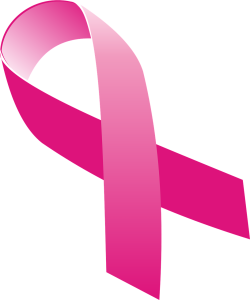Olivia’s story
Olivia was diagnosed with stage three breast cancer, aged 60. She struggled to accept her appearance following a mastectomy on her right breast and was referred by Queen Victoria Hospital (QVH) to their psychological services. Ruth MacQueen, the clinical psychologist who supported her, was funded thanks to a grant which QVH Charity secured from NHS Charities Together.
Olivia kindly shares her story…
“During my first consultation at QVH, they noticed that my bra and the side of my body where I had lost a breast was in a bit of a state. This was because I had a developed a phobia and could not look at myself, touch myself or even take my bra off. The consultant referred me because I needed to talk to someone to get me out of the nightmare I was living every day.
I was diagnosed with breast cancer in August 2019. I started my treatment just before the pandemic and most of it took place during lockdown. Every time I went for radiotherapy, I had to apologise and say that I just couldn’t bear to take my bra off. I’d shut my eyes or someone else would have to do it. I could not stand the feeling of nothing being there.
When I was referred to QVH’s psychological support, I was able to talk to Ruth about what was happening to me. We had six months of weekly therapy, and it turned things around for me massively. I had no idea that services like this existed. Before my mindset was, I can only go out and about with my prosthetic and that became my breast, and I didn’t want it being taken away. It was my coping mechanism.
Ruth has really helped. Having someone to just listen to me was great. She took me seriously and discussed with me why I was reacting that way and how I had just got stuck in my way of thinking. She helped me to see things differently. I don’t know how she did it. But we took it in small stages, and Ruth made sure that I was comfortable at each stage. I set myself little goals to achieve each week. I’m the sort of person who wants to feel like they are progressing, and the goals really helped.
I wanted to reach these goals for Ruth each week, because I didn’t want to let her and myself down. She would never have made me feel like that, but it was good for me to be like that.
I have lots of lovely friends who are very understanding, but they wouldn’t know how to approach the psychological side like that, so it was good to have somebody who didn’t know me. It was a really good working relationship.
Having the sessions over a video call worked well for me. I had become used to using Zoom during lockdown, so it was second nature. It was also nice to be in my own environment to talk about my feelings. This meant I was more comfortable than having to travel an hour and back to the sessions which would have been stressful.
We had quite good relaxation at the end of each session because it was quite tiring to focus on your fears for a long period of time.
That was really enabling for me, but it has taken some time, and it was intense. It was an hour a week, but it was just so incredibly helpful and made me realise I could come out of this.
After sessions with Ruth, I remember going for a mammogram and being able to take my bra off and not shut my eyes. So far, they have not got worse again.
Ruth did say that I could contact her if things build up again. She has given me a toolkit of how to deal with my emotions if they start again and I know I can use that. It is certainly not easy. I wouldn’t say I am fully cured; I still only want minimum time of not having the prosthetic on. But I can now have a proper shower; something I couldn’t do before. I feel more like an adult if I do have to go somewhere and take my bra off – without feeling like a child as I used to. I still don’t like looking at that part of my body, but I can cope with it now, which I couldn’t before.
Ruth was a lifeline. I think everybody should have a Ruth.”
Camilla Lane, Head of Fundraising and Voluntary Services at QVH Charity, said:
“The funding enabled Queen Victoria Hospital to appoint an additional clinical psychologist dedicated to working with patients who need support on their cancer journey. Patient feedback tells us how important this is alongside the clinical treatment and practical advice they receive. This project has also provided psychological support for our specialist cancer nurses, including around having difficult conversations about end of life. In the first six months the project supported 45 patients.”